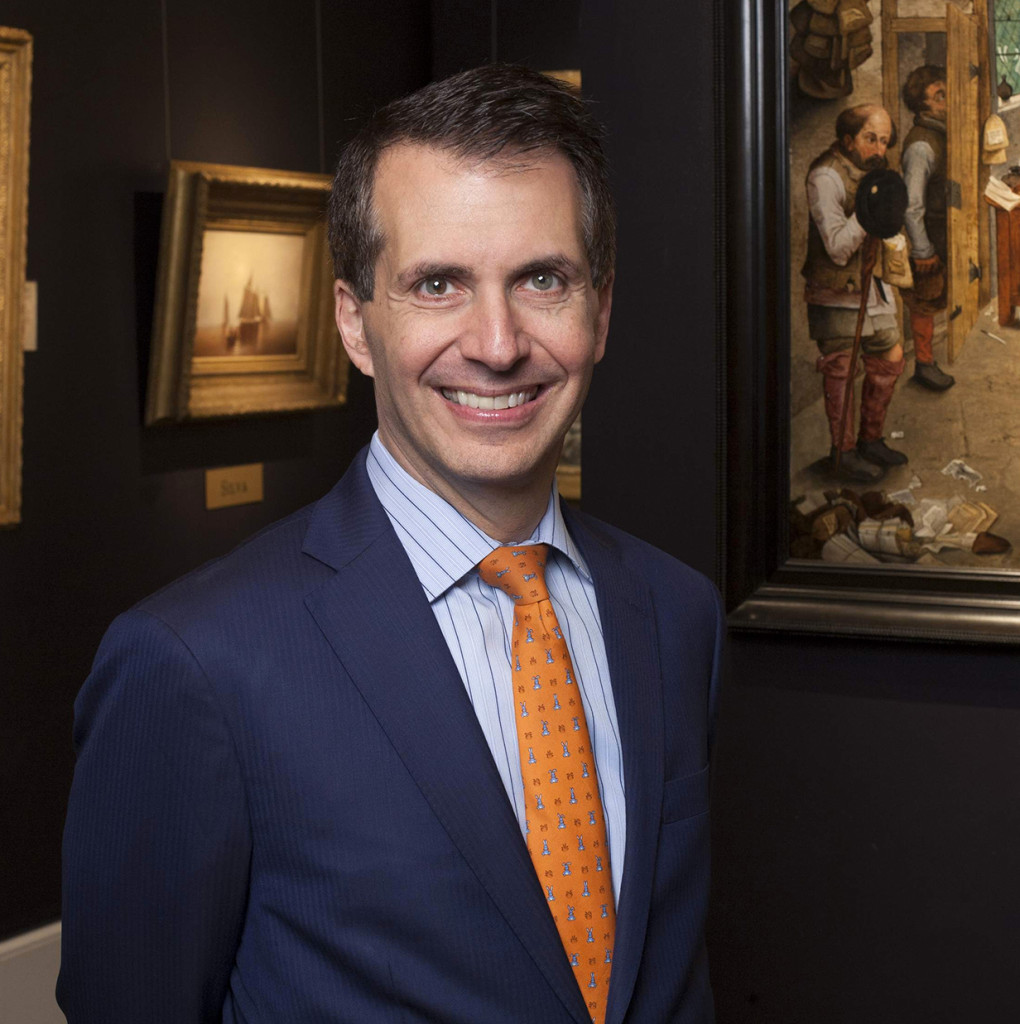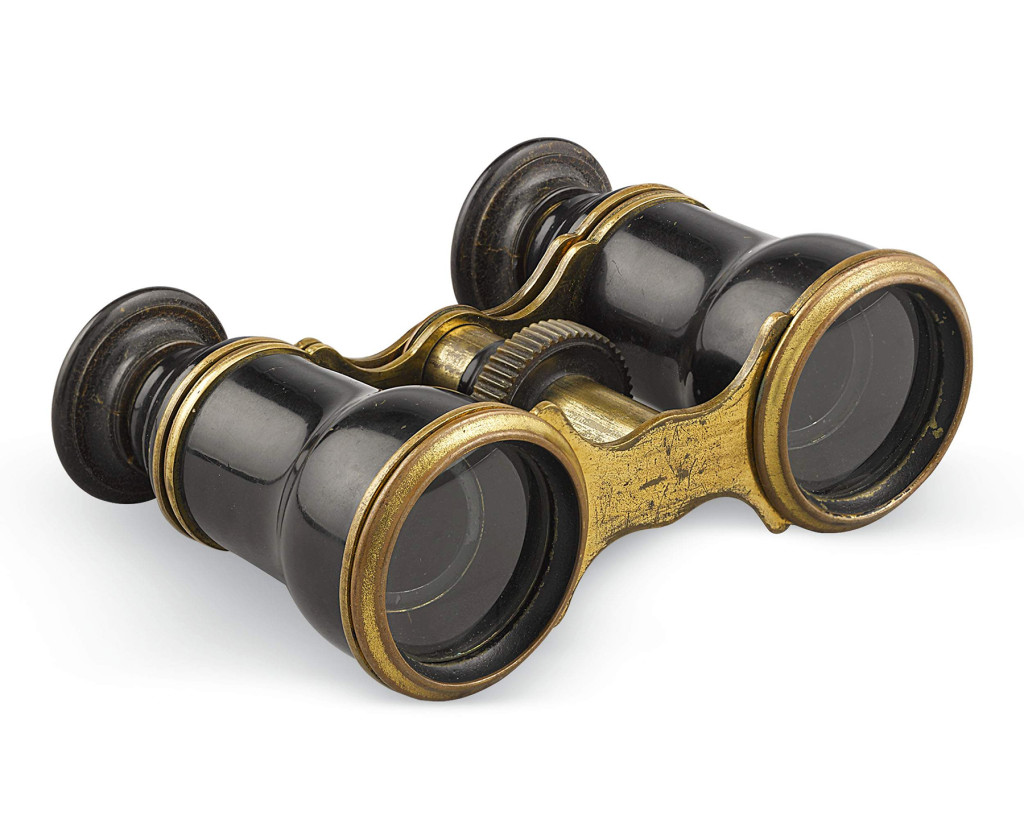 When US President Abraham Lincoln was assassinated on April 14, 1865, one of the first people to reach him was Captain James M. McCamly, a member of the City Guard of Washington, who was guarding the Ford Theater that evening. He was one of the honorable men who helped carry Lincoln to the Peterson House across the street, where the president ultimately died. When Lincoln was first picked up from his theater box, something fell from his body and hit the ground. Captain McCamly reflexively picked up the item and put it in his pocket, expecting to return it later. What had fallen were opera glasses, which were likely in the hands of the president, if not tangled in his clothes. Bill Rau, president of New Orleans, La.-based M.S. Rau Antiques, now owns this poignant relic of an important and tragic moment in American history.
When US President Abraham Lincoln was assassinated on April 14, 1865, one of the first people to reach him was Captain James M. McCamly, a member of the City Guard of Washington, who was guarding the Ford Theater that evening. He was one of the honorable men who helped carry Lincoln to the Peterson House across the street, where the president ultimately died. When Lincoln was first picked up from his theater box, something fell from his body and hit the ground. Captain McCamly reflexively picked up the item and put it in his pocket, expecting to return it later. What had fallen were opera glasses, which were likely in the hands of the president, if not tangled in his clothes. Bill Rau, president of New Orleans, La.-based M.S. Rau Antiques, now owns this poignant relic of an important and tragic moment in American history.
You say these glasses are the most important presidential artifact not currently in a museum and you are offering them for $795,000. Why aren’t they in a museum?
Captain McCamly and his descendants kept the glasses in the family, and when the family did part with them, they stayed in private hands and were simply never offered to a museum.
Why didn’t Captain McCamly immediately return the opera glasses to the Lincoln family?
Once the president was confirmed dead and McCamly finally got home, he realized what he had picked up were the president’s opera glasses. At the time, McCamly thought it trivial to worry about such a then-common object in the face of such a national tragedy, so he just kept them.
Where did they go from there?
The glasses were passed through the McCamly family for several generations, beginning with the captain’s widow, who gave them to her granddaughter, Sarah M. Hartt. Hartt then passed them to her son, Robert C. Hartt, who sold them in 1968 to the Abraham Lincoln Book Shop in Chicago. It was at this time the investigation began into the glasses’ history and provenance, which is incredibly well documented. The glasses were then sold to collector Malcolm Forbes, who prominently displayed them at his Fifth Avenue Gallery in New York. In 2002, they were sold at a Christie’s auction — with commissions, taxes, insurance, etc — for a total of $515,000.
How did they come into your possession?
We acquired the glasses from the private collector who purchased them in 2002 at the Christie’s auction.
How was their authenticity validated?
Margaret Klapthor, the then-associate curator of political history at the Smithsonian, validated the age, materials and style of the opera glasses, proving they were the same used by gentlemen of Lincoln’s period. Permission was soon secured to compare the glasses to the original carrying case held by Ford’s Theater Museum. Upon examination, these opera glasses fit the case perfectly, proving these were indeed Lincoln’s opera glasses.
What thoughts or emotions go through you when you hold them in your hands?
When I hold something amazing in my hand, I feel incredibly lucky that my job brings me into contact with things that are both works of art and pieces of history. I feel honored to have a connection to these important items, and I consider it a true responsibility to find them their next home, where they’ll be taken care of for future generations. It’s a very personal thing, passing a cherished treasure down through a family or to a new owner. Every piece has a story, and my role is to open the next chapter in that story.
In light of the theft of an important mystery clock from your booth in Chicago last year, you’re probably not going to display these at any upcoming shows, right?
As C.S. Lewis said, “Experience: that most brutal of teachers. But you learn, my God do you learn.” That was a big learning experience for our team. The thieves were professionals, working together with technology to distract my team on the floor. It was a costly lesson, and yet it served us. We invested in the highest grade possible surveillance system, and every member of my team has now had training in what to watch for, and how to respond. We do the shows because we want to share what a great gallery we have, and we’ll keep on bringing our finest items. We’re smarter now, though, about how we display it.
This summer the private foundation that runs the Lincoln Presidential Library and Museum in Springfield, Ill., said it was more than $9 million short on a $23 million loan used to buy Lincoln artifacts from a private collector, and said it may have to auction off some of its collection of Lincoln’s belongings. Your thoughts on auctioning off such historical artifacts?
Private collectors and museums have a symbiotic relationship. Some of our clients are avid collectors building a collection that will eventually end up in a museum. And it’s an unfortunate fact that museums do deaccession items. It’s a circle. The important thing is that the treasures are taken care of. Stewardship, not ownership, is the important part.
—W.A. Demers





